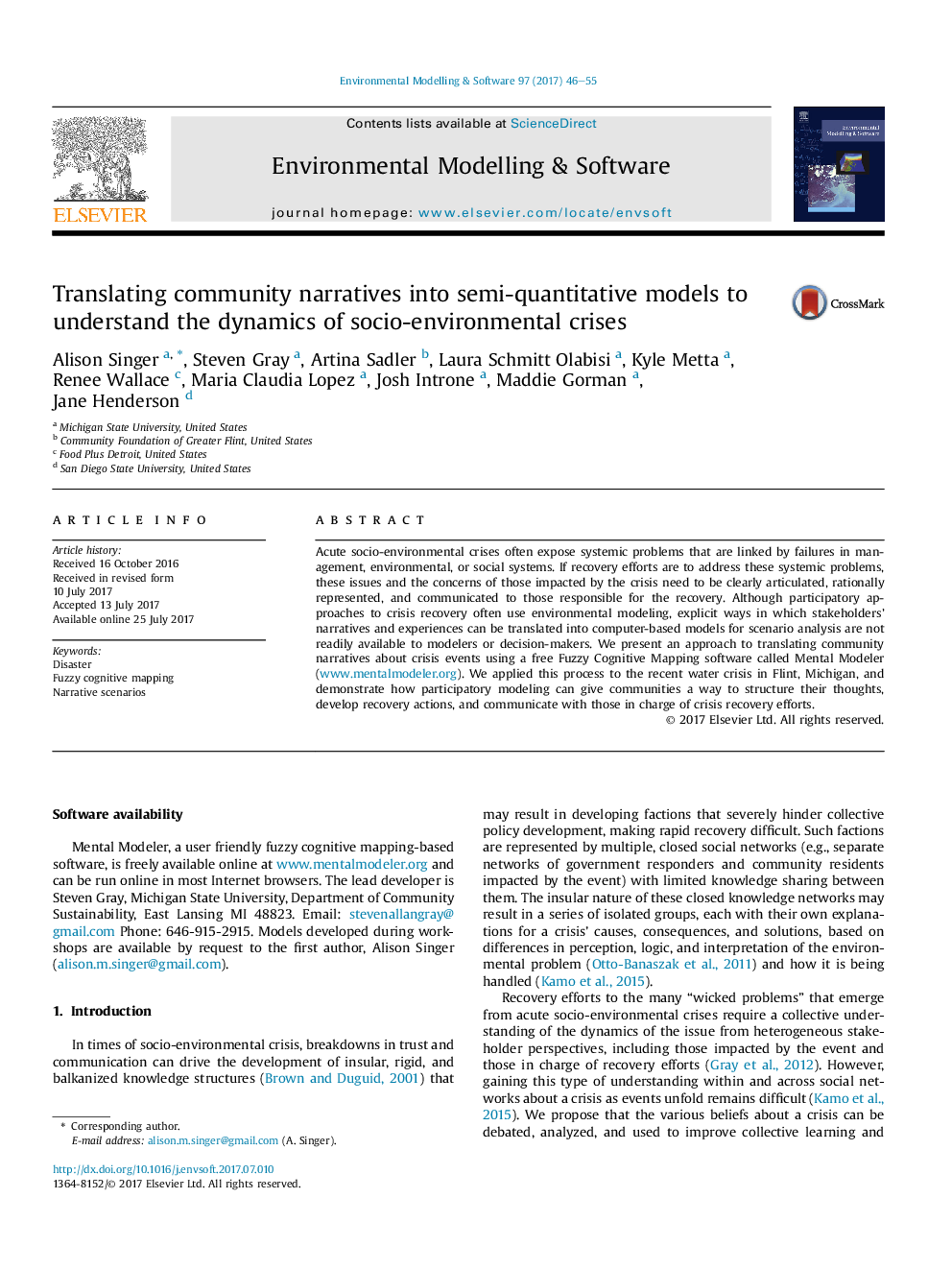| Article ID | Journal | Published Year | Pages | File Type |
|---|---|---|---|---|
| 4978054 | Environmental Modelling & Software | 2017 | 10 Pages |
Abstract
Acute socio-environmental crises often expose systemic problems that are linked by failures in management, environmental, or social systems. If recovery efforts are to address these systemic problems, these issues and the concerns of those impacted by the crisis need to be clearly articulated, rationally represented, and communicated to those responsible for the recovery. Although participatory approaches to crisis recovery often use environmental modeling, explicit ways in which stakeholders' narratives and experiences can be translated into computer-based models for scenario analysis are not readily available to modelers or decision-makers. We present an approach to translating community narratives about crisis events using a free Fuzzy Cognitive Mapping software called Mental Modeler (www.mentalmodeler.org). We applied this process to the recent water crisis in Flint, Michigan, and demonstrate how participatory modeling can give communities a way to structure their thoughts, develop recovery actions, and communicate with those in charge of crisis recovery efforts.
Keywords
Related Topics
Physical Sciences and Engineering
Computer Science
Software
Authors
Alison Singer, Steven Gray, Artina Sadler, Laura Schmitt Olabisi, Kyle Metta, Renee Wallace, Maria Claudia Lopez, Josh Introne, Maddie Gorman, Jane Henderson,
